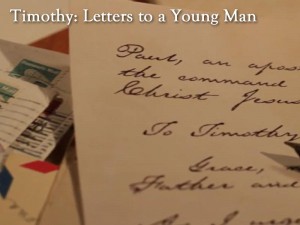
Christmas Is Not Your Birthday – Giving Up on Perfect *
Sycamore Creek Church
December 15/16, 2013
Tom Arthur
Luke 1:26-38
Merry Christmas Friends! Let’s dive into the Christmas story today…
Luke 1:26-38 NLT
In the sixth month of Elizabeth’s pregnancy, God sent the angel Gabriel to Nazareth, a village in Galilee, to a virgin named Mary. She was engaged to be married to a man named Joseph, a descendant of King David. Gabriel appeared to her and said, “Greetings, favored woman! The Lord is with you!”
Confused and disturbed, Mary tried to think what the angel could mean. “Don’t be afraid, Mary,” the angel told her, “for you have found favor with God! You will conceive and give birth to a son, and you will name him Jesus.He will be very great and will be called the Son of the Most High. The Lord God will give him the throne of his ancestor David. And he will reign over Israelforever; his Kingdom will never end!”
Mary asked the angel, “But how can this happen? I am a virgin.”
The angel replied, “The Holy Spirit will come upon you, and the power of the Most High will overshadow you. So the baby to be born will be holy, and he will be called the Son of God. What’s more, your relative Elizabeth has become pregnant in her old age! People used to say she was barren, but she has conceived a son and is now in her sixth month. For nothing is impossible with God.”
Mary responded, “I am the Lord’s servant. May everything you have said about me come true.”
And then the angel left her.
We’re into the second week of a series called Christmas Is Not Your Birthday. Whose birthday is it? We all know the answer, but how many presents under the Christmas tree will have Jesus’ name on it? Instead of focusing on the birthday boy himself, what we end up trying to do is have some kind of perfect traditional Christmas. Our search looks something like this:
In the movie, Christmas Vacation, Clark Griswold is searching for the perfect traditional Christmas. He’s got an image in his mind that is similar to the image almost all of us have in our mind too. There’s a problem with our quest to attain this image of Christmas.
Mike Slaughter says, “In our attempts to create the magical Christmas experience we run ourselves into the ground emotionally, physically, financially, and relationally.”
Last year around this time someone turned in an anonymous prayer request that was so beautifully written that I saved it. It describes well the situation that many find themselves in while searching for the perfect traditional Christmas:
Please remember all those for whom the holidays are a difficult time. Perhaps they have lost loved ones whom they miss; especially when family gather at the holidays. There are those who have little or no family, or do not feel part of the family they do have. They may have major financial challenges that make it difficult to go see loved ones or to buy food for a nice dinner or gifts for their children. They may have both sad and happy memories of holidays past, but this year, they are sad and depressed and just getting through another day is a challenge. May our Lord be a strength and comfort to them! May we remember to extend a hand of hospitality and friendship, not knowing how much it may mean to those around us.
Speaking of the pain that many feel around this time of the year, how are your listening skills? Listening is probably one of the most powerful tools in your toolbox. If you could use some improvement on your listening and caring skills, make sure you check out the training we have coming up in February with John Savage. We’ll spend Thursday and Friday evening as well as all day Saturday learning how to listen and care for one another in more effective ways. John Savage has worked with our church in the past and is a retired United Methodist pastor, psychologist, corporate pain specialist, life coach, author of several books, and musician. Among all those things he is really just a very wise man. This is a can’t miss opportunity to improve your listening skills in your marriage, in your job, with your friends, and in your church. If you want more info, email Pat Brown (pat.orme@yahoo.com).
And yet amidst the chaos that is Christmas, Mike Slaughter reminds us that when we focus on the birthday boy himself, “Christmas is God’s vivid reminder that amid the uncertainty, God shows up to bring you peace, purpose, joy, hope, and wholeness.”
Unsanitary NOT PERFECT
So, friends, let’s give up on perfect. There was very little that was perfect about Jesus’ birth. The nativity was unsanitized, NOT PERFECT. Think about this for a second. Have you ever been in a delivery room? The two times I’ve spent significant time in a delivery room at the hospital, everything was squeaky clean. All the instruments used were wrapped in plastic and opened just for us. All the bedding was fresh and washed (at least to begin with!). The floor was spick and span. But this was not the setting that Jesus was born into. He was born in a barn. Have you been in a barn lately? It’s filled with flies and dung. And those flies had most likely been on that dung. Jesus was born in a very unsanitary situation. The public health officials would have had a heyday!
But our lives are not sanitary either, are they? Life is messy. The more we follow Jesus the messier it gets. Mike Slaughter says:
In turn, the Gospel of Luke makes it indelibly clear that walking in the way of Jesus is neither safe nor predictable. Sometimes we have the idea that when we do right, wrong is not supposed to show up. And if we are faithfully following Jesus, then life isn’t supposed to get messy, but it does.
Don’t for a moment think that just because you follow Jesus that life will get easier. It is likely to get harder!
Favored NOT Perfect
When the angel Gabriel appears to Mary he says, “Greetings, favored woman! The Lord is with you!” (Luke 1:28 NLT). Slaughter reminds us that:
God’s favor cannot be earned. God comes when we are doing everything wrong. God comes when we are doing nothing. God comes whether we are being naughty or nice. Why? Because God loves us and we are highly favored!
This announcement by Gabriel was not what Mary was expecting. She responds, “But how can this happen? I am a virgin” (Luke 1:34 NLT). Mary wants to know how she’ll be pregnant if she’s a virgin. She had done everything right so far. She had saved herself for her future husband, and then she ends up pregnant? We too do everything we know to be faithful to God and then you lose your job, your spouse tells you they want a divorce, your four-year-old is diagnosed with leukemia, your kid’s high school counselor calls to tell you they think your teenager is using drugs, and you ask, “How can this be, God, when I have tried so hard to do what is right?”
Imagine Mary’s conversation with Joseph. Imagine Joseph’s response, “God did it?” Joseph doesn’t believer her. He plans to quietly divorce her. She might be stoned to death for adultery. Slaughter reminds us that, “Nowhere does the Bible promise that a life of faith will always make sense or follow a predictable path.” Mary is favored even though her situation seems far from perfect.
NOT Perfect but NOT Alone
Gabriel goes on to tell Mary, “What’s more, your relative Elizabeth has become pregnant in her old age! People used to say she was barren, but she has conceived a son and is now in her sixth month” (Luke 1:36 NLT). She will not be alone in this because she has community.
My son, Samuel Lewis, was born on July 5th. I posted this on Facebook and noticed that immediately below that posting was my good friend Jon Van Dop’s posting that their son, Nic, was also born on July 5! We were not doing this alone. I was, however, one kid ahead of him, and he had sat through several meals listening to me go a little crazy about learning to live with a baby in the house. Next time we met, he said to me, “You know when I used to listen to you talk about how you were frustrated and angry and going a little crazy when your first son was born, and I would look at you like I understood? I didn’t understand but now I do!” God used that difficult experience I had of getting used to having a baby in the house (after thirteen years of being married with no children!) to be a help to Jon with his first baby. Jon didn’t have to do this alone. None of us do. We have a community called SycamoreCreekChurch.
We not only have the community of the church around us, but we also have the Holy Spirit. Gabriel continues, “The Holy Spirit will come upon you, and the power of the Most High will overshadow you. So the baby to be born will be holy, and he will be called the Son of God” (Luke 1:35 NLT). The Holy Spirit is God’s presence with us. Mary is told her child shall be called “Immanuel” which means “God is with us.” Even if the community is not immediately available, God is with you. The Holy Spirit is God’s comforter, God’s advocate, God’s love and mercy and grace with you.
NOT Perfect but Faithful
Mary surely was not perfect as a human being. There was only one perfect person, her son, Jesus. But she was faithful. Mary responded, “‘I am the Lord’s servant. May everything you have said about me come true.’ And then the angel left her” (Luke 1:38 NLT). This is the “divine consent.” Mary was willing to allow this to happen to her. She responded with faith even though the whole thing must have seemed a bit preposterous. And Mary continued to be faithful. Mary was faithful in bringing up Jesus by bringing him to the temple for the temple sacrifices, temple visits, and to study the scriptures. Mary was faithful when the religious leaders accused Jesus of heresy. Mary was faithful when Jesus was found guilty in a rigged trial. Mary was faithful when the appeal to Roman politicians failed. Mary was faithful while her son was flogged. Mary was faithful while her son was executed on a cross. Mary was faithful when her son breathed his last breath. Mary was faithful when Jesus was laid in the grave. Mary’s life was not perfect, but she was faithful to what God had called her to do: to be a loving mother.
Friends, we need to give up on the perfect Christmas. There is no perfect Christmas and the first Christmas was no image of perfection either. Slaughter reminds us:
So when Christmas comes around during an imperfect season of life, and you just don’t feel like celebrating, remember: it’s not your birthday; it’s Jesus’ birthday, and by celebrating Christmas, we are celebrating someone else who suffered too.
Instead of seeking the perfect Christmas, let’s seek to make Christmas about Jesus’ birthday and celebrate it accordingly. One way you can do this is to take our Christmas challenge: give away as much as you spend on yourself this Christmas. Some of you can do this by just being more generous. Others will need to cut your spending on yourself, your kids, your grandkids, and your boss or secretary in half so that you can give half away. Then bring that second half in on Christmas Eve and give it in the Christmas Eve offering. 100% of the Christmas Eve offering is given away. This year we’re giving it to our medical missions in Nicaragua, the second poorest country in this hemisphere. Twice a year we send medical teams down to do medical clinics. They bring life-giving and life-sustaining medicine and medical expertise to bring both physical and spiritual hope. Over the years on Christmas Eve we’ve given away over $31,000. Last year we gave away $3800. 2011 was our record year when we gave away $5800. Can we make 2013 a record year? Can we give away $6000? Can we make it a miracle year? Can we give away $10,000? If we can, it will be because you gave up on perfect and decided to celebrate Christmas like it’s Jesus’ birthday.
Jeremy Kratky, our worship leader, is gearing his family up to celebrate Christmas with some different traditions this year. He told me about a question his sister emailed him and how he responded. I asked him if I could share it with you. Here it is:
Tom,
My older sister asked me this question in an email earlier today: What does the Christmas season look like in your home?
Below is my response. Thank you God and Sycamore Creek Church for helping me see Christmas in a different light!
Christmas in my home is what you might imagine. It’s focused on relationships with some gift giving. Kristin and I have been convicted (in a good way) on how we spend our money around Christmas. Our church is currently in a series called, “Christmas Is Not Your Birthday.” We’ve all been challenged to give away as much as we spend on Christmas to people who actually have needs. Or, to spend half as much on Christmas and give the other half away. It’s a huge challenge and we’re not there yet. We did incorporate, however, a baby step this year. Rather than spend money on a gift for each other this Christmas (approximately $50 each), Kristin and I elected to give that money to a medical missions team our church supports which provides life giving, life sustaining, and life altering medicines, education, and hope to people in Nicaragua. So our gift to each other this year is a date night, which is already built into our monthly budget (so we’re actually not spending any additional money). Rather than it being just another date night, our gift to one another is this make a craft or riddle that represents a date night surprise. For example, Kristin loves musical theater. So I’m thinking about buying tickets to a show at the Wharton Center. The craft or riddle I create would work in the theme or the title of the show we’re going to see. The beauty of it is that we’d be going on a date night anyway, but this adds a celebratory component to it that makes it a wonderful gift. Thus, the $100 we would’ve spent on each other is now available to bless others. Each year on Christmas Eve, Sycamore Creek receives an offering that goes to this Medical Missions Team. 100% of it! If all of us do even one little change this year on how we spend money, we anticipate a HUGE offering that will bless others. We’re dreaming the offering might be over $10,000! For a church our size? That’d be a miracle! We still bought our kids their presents. We read the Christmas story as recorded in Scripture and we’ll sing Happy Birthday Jesus. We have a beautifully decorated tree and poinsettias strewn about the house. We have our mantle dressed with Christmas-y stuff. It’s rather cozy. Outdoor Christmas lights. We’re letting go of some old traditions (Kristin and I buying each other a gift) and making some new ones with our children. Jonah, Nora, and I made Christmas cookies the other night at a cookie decorating party I attended with a Dads group I’m a part of. We dropped them off to firefighters on the way home. I want Jonah and Nora to really understand that Christmas is about giving, not necessarily getting. Giving cookies to those firefighters the other night was something that Jonah and I suspected was on Jesus’ wish list; for it’s His birthday, right? As you can tell, this message series has been very helpful to me and my family. I’m thankful you asked what Christmas looks like, for it is different this year, and hopefully for years to come.
We just ended a three year capital campaign here at Sycamore Creek for building/space needs. We’re tithing off the top 10% to local and foreign missions. So this Christmas our small groups (growth groups), who each have committed to service in mission to our local community, are having fun giving away $1000 checks to their respective mission that particular group supports. We feel it’s on Jesus’ wish list.
Love you,
Jeremy
This year we’re also giving away $1000/week to the local missions that our small groups support. This week we gave away $1000 to Open Door Ministry. Here’s that giveaway:
Will you give up on the perfect Christmas this year and instead seek to make it about celebrating Jesus’ birthday? May God work a miracle in and through Sycamore Creek Church this Christmas. Amen!
*This sermon series is based on the book, Christmas Is Not Your Birthday by Mike Slaughter.




Recent Comments